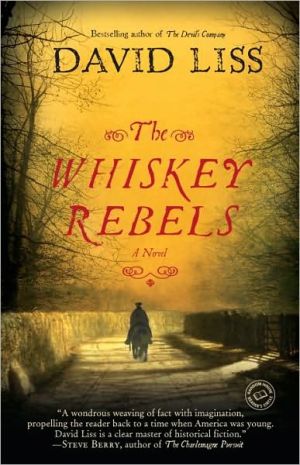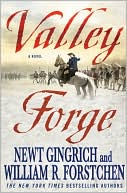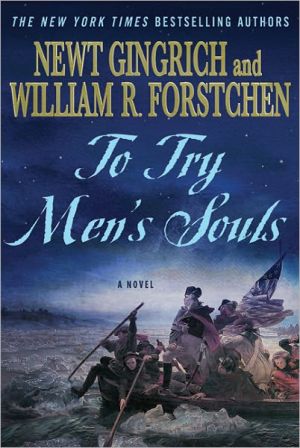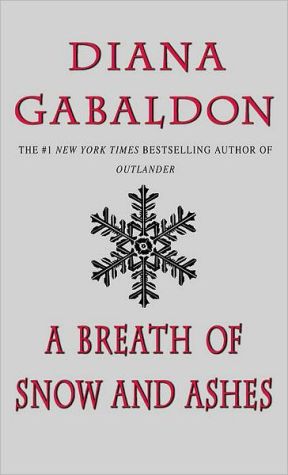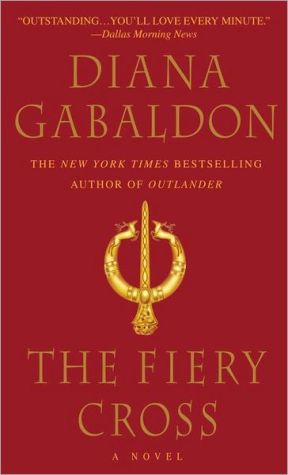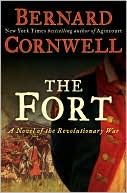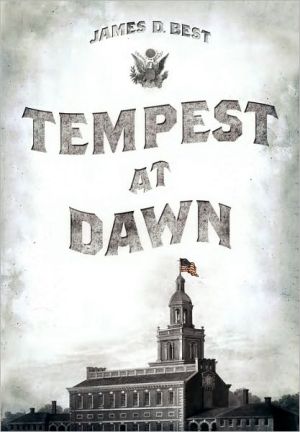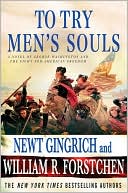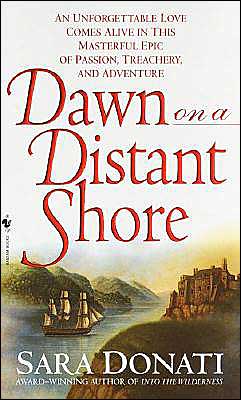The Whiskey Rebels
America, 1787. Ethan Saunders, once among General Washington’s most valued spies, is living in disgrace after an accusation of treason cost him his reputation. But an opportunity for redemption comes calling when Saunders’s old enemy, Alexander Hamilton, draws him into a struggle with bitter rival Thomas Jefferson over the creation of the Bank of the United States.\ Meanwhile, on the western Pennsylvania frontier, Joan Maycott and her husband, a Revolutionary War veteran, hope for a better...
Search in google:
Ethan Saunders, once among General Washington’s most valued spies, now lives in disgrace, haunting the taverns of Philadelphia. An accusation of treason has long since cost him his reputation and his beloved fiancée, Cynthia Pearson, but at his most desperate moment he is recruited for an unlikely task finding Cynthia’s missing husband. To help her, Saunders must serve his old enemy, Treasury Secretary Alexander Hamilton, who is engaged in a bitter power struggle with political rival Thomas Jefferson over the creation of the fragile young nation’s first real financial institution: the Bank of the United States.Meanwhile, Joan Maycott is a young woman married to another Revolutionary War veteran. With the new states unable to support their ex-soldiers, the Maycotts make a desperate gamble: trade the chance of future payment for the hope of a better life on the western Pennsylvania frontier. There, amid hardship and deprivation, they find unlikely friendship and a chance for prosperity with a new method of distilling whiskey. But on an isolated frontier, whiskey is more than a drink; it is currency and power, and the Maycotts’ success attracts the brutal attention of men in Hamilton’s orbit, men who threaten to destroy all Joan holds dear.As their causes intertwine, Joan and Saunders both patriots in their own way find themselves on opposing sides of a daring scheme that will forever change their lives and their new country. The Whiskey Rebels is a superb rendering of a perilous age and a nation nearly torn apart and David Liss’s most powerful novel yet.The Barnes & Noble ReviewDavid Liss's new novel, set in an America where financial collapse is imminent, teems with double crosses, political intrigue, concealed identities, blackmail, spies, and sex scandals. The stock market is on a roller-coaster ride, and brokers on the trading floor reek of panic and floppy sweat. Welcome to 1792.
Chapter One\ Ethan Saunders\ \ It was rainy and cold outside, miserable weather, and though I had not left my boardinghouse determined to die, things were now different. After consuming far more than my share of that frontier delicacy Monongahela rye, a calm resolution had come over me. A very angry man named Nathan Dorland was looking for me, asking for me at every inn, chophouse, and tavern in the city and making no secret of his intention to murder me. Perhaps he would find me tonight and, if not, tomorrow or the next day. Not any later than that. It was inevitable only because I was determined not to fight against the tide of popular\ opinion—which is to say, that I ought to be killed. It was my decision to submit, and I have long believed in keeping true to a plan once it has been cast in earnest.\ It is a principle I cultivated during the war—indeed, one I learned from observing General Washington himself. This was in the early days of the Revolution, when His Excellency still believed he might defeat the British in pitched battle, Continental style, with our ill- disciplined and badly equipped militias set against the might of British regulars. It was the decisive military victory he wanted; indeed, in those early days it was the only sort he believed worth having. He would invite the officers to dine with him, and we would drink claret and eat roast chicken and sip our turtle soup and he would tell us how we were going to drive the Redcoats back at Brooklyn, and the unfortunate affair would be over before winter.\ That was during the war. Now it was early in 1792, and I sat at the bar of the Lion and Bell in that part of Philadelphia euphemistically called Helltown. In that unsavory scene, I drank my whiskey with hot water while I waited for death to find me. I kept my back to the door, having no wish to see my enemy coming and because the Lion and Bell was as unlovely a place as Helltown offered—and those were mighty unlovely. The air was thick with smoke from pipes plugged full of cheap tobacco, and the floor, naught but dirt, had turned to mud with the icy rain outside and the spills and spitting and tobacco juice. The benches lay lopsided in the newly made hummocks and ruts of the ground, and the drunken patrons would, from time to time, topple over and tumble like felled timber into the muck. Perhaps a drinker might take the trouble to roll a friend over to keep him from drowning, though there could be no certainty. Helltown friends were none the best.\ It was a curious mix there: the poor, the whores, the desperate, the servants run off for the night or the month or forever. And alongside them, throwing dice upon uneven surfaces or hunched over a hand of cards spread across ripped velvet, were the gentlemen in their fine woolen suits and white stockings and shimmering silver buckles. They’d come to gawk and to rub elbows with the colorful filth, and most of all they’d come to game. It was the spirit of the city, now that Alexander Hamilton, that astonishing buffoon, had launched his great project, the Bank of the United States. As Secretary of the Treasury, he had single-handedly transformed the country from a republican beacon for mankind into a paradise for speculators. Ten years earlier, with a single stroke, he had transformed me from patriot to outcast.\ I removed from my pocket a watch, currently my only possession of value if one did not account my slave, Leonidas. I had, despite the decisions that had prevailed among the wise drafters of our Constitution, never quite learned to think of Leonidas as property. He was a man, and as good a man as any I’d known. It sat ill with me to keep a slave, particularly in a city like Philadelphia, whose small population of owned blacks numbered in the dozens, and one could find fifty free blacks for each bondsman. I could never sell Leonidas, no matter how dire my need, because I did not think it right to buy and sell men. On the other hand, though it was no fault of his, Leonidas would fetch at auction as much as fifty or sixty pounds’ worth of dollars, and it had always seemed to me madness to emancipate such a sum.\ So the timepiece, in practical terms, was currently my only thing of worth—a sad fact, given that I had removed it from its rightful owner only a few hours earlier. Its glittering face told me it was now half past eight. Dorland would have eaten his fashionably late dinner well over two hours ago, giving him ample time to collect his friends and come in search of me. It could be any minute now.\ I slid back into my pocket the timepiece I’d taken on Chestnut Street. The owner had been a fat jackanapes, a self-important merchant. He’d been talking to another fat jackanapes and had paid no mind while I brushed past him. I’d not planned to take the watch, nor did I make a habit of such things as common theft, but it had been so tempting, and there seemed to be no reason not to claim it and then disappear in that crowded street, clacking with the walking sticks of bankers and brokers and merchants. I saw the watch, saw it might be taken, and saw how I might take it.\ Even then, if that had been all, I would have let it go, but then I heard the man speak. It was his words, not my need, that drove me to take what was not mine. This man, this lump of a man, who resembled a great and corpulent bottom-heavy bear, forced into a crushed-velvet blue suit, had been invited to a gathering the next week at the house of Mr. William Bingham. That was all I knew of him, that he, a mere maker of money, nothing more than a glorified storekeeper, had been invited to partake of the finest society in Philadelphia—indeed, in the nation. I, who had sacrificed all for the Revolution, a man who had risked life in return for less than nothing, was little more than a beggar. So I took his watch, and I defy anyone to blame me.\ Now that it was mine, I examined the painting in the inside cover, a young lady of not twenty, plump of face, like the watch’s owner, with a bundle of yellow hair and eyes far apart and open wide, as though she’d been in perpetual astonishment while she sat for the portrait. A daughter? A wife? It hardly mattered. I had taken from a stranger a thing he loved, and now Nathan Dorland was coming to avenge such wrongs, too innumerable to catalogue.\ “Handsome timepiece,” said Owen, standing behind the bar. He was a tall man with a head long and narrow, shaped like one of the pewter mugs into which he poured his ales, with wheat-colored hair that curled up like foam. “Timepiece like that might go a way toward paying a debt.” He held out one of his meaty hands, covered with oil and filth and blood from a fresh cut on his palm to which he paid no mind.\ I shrugged. “With all my heart, but you must know the watch is newly thieved.”\ He withdrew the hand and wiped it on his filthy apron. “Don’t need the trouble, but I ought to send you to fence it now, before you lose it at game.”\ “Should I turn the watch to ready, I would not use it for something so ephemeral as a tavern debt.” I pushed my empty mug toward him. “Another, if you please, my good man.”\ Owen stared for a moment, his tankard of a face collapsed in purse- lipped indecision. He was a young man, not two-and-twenty, and he had a profound, nearly religious reverence for those who had fought in the war. Living, as he did, in such a place as Helltown, and moving through indifferent social circles, he had never heard how my military career had met its conclusion, and I saw no advantage in sharing information that would lead to his disillusionment.\ Instead, I favored other details. Owen’s father died in the fighting at Brooklyn Heights, and more than once had I treated Owen to the tale of how I had met his father that bloody day, when I was captain of a New York regiment, before my true skills were discovered and I was no longer to be found upon the battlefield. That day I led men, and when I told Owen the tale, my voice grew thick with cannon fire and death screams and the wet crunch of British bayonet against patriot flesh. I would recount how I had given Owen’s honored father powder during the chaos of the ignominious retreat. With blood and limbs and musket balls flying about us, the air acrid with smoke, the British slaughtering us with imperial fury, I had taken the time to aid a militia volunteer, for we had shared a moment of revolutionary comradeship that defied our differences in rank and station. The tale kept the drinks flowing.\ Owen took my mug, poured in some whiskey from an unstoppered bottle and hot water from a pitcher near the stove. He set it down before me with a considerable thud.\ “Some would say you’ve had your fill,” he told me.\ “Some would,” I agreed.\ “Some would say you’re abusing my generosity.”\ “Impertinent bastards.”\ Owen turned away and I opened the watch once more, setting it upon the counter, where I might stare at the tick of its hands and the girl who had meant so much to the merchant. To my right sat an animated skeleton of a man in a ragged coat that covered remarkably unclean linen. His face was unshaved, and his nasty eyes, lodged between the thinning brown hair of his crown and the thickening brown hair of his cheeks, stole glances at my prize. I’d seen him come in an hour earlier and slide a few coins across the bar to Owen, who had, in exchange, handed a small parchment sack to the ragged man. Owen did a brisk trade in that greenish powder called Spanish fly, though this man, his magic dust in hand, seemed content to sit at the bar and cast glances at me and my timepiece.\ “I say, fellow, you are looking upon my watch.”\ He shook his head. “Wasn’t.”\ “Why, I saw it, fellow. I saw you setting larcenous eyes upon my watch. This very one.”\ “Ain’t,” he said, looking closely at his drink.\ “Don’t you speechify at me, fellow. You were coveting my timepiece.” I held it up by the chain. “Take it if you have the courage. Take it from my hands while I observe you rather than skulking in the dark like a sneak thief.”\ He continued to gaze inside his pewter mug as though it were a seeing crystal and he a wizard. Owen whispered a word or two to him, and the skinny gawker moved farther down the bar, leaving me alone. It was what I liked best.\ The hands of the watch moved. It was strange how a man could find himself in so morose a state. Only a few days before I had considered Dorland’s pursuit of revenge as a vague amusement. Now I was content to let him kill me. What had changed? I could point to so many things, so many disappointments and failures and struggles, but I knew better. It was that morning, coming from my rooms and seeing the back of a woman half a block ahead of me, walking quickly away. From a great distance, through the tangle of pedestrians, I had seen a honey-brown coat and, above it, a mass of golden-blond hair upon which sat a prim if impractical wide-brimmed hat. For a moment, from nothing more than the color of her hair, from the way her coat hung upon her frame, from the way her feet struck the stones, I had convinced myself that it was Cynthia. I believed, if only for an instant, that after so many years and married though she was to a man of great consequence, Cynthia Pearson knew I now lived in Philadelphia, knew where I lived, and had come to see me. Perhaps, at the last moment, recognizing the impropriety, she lost her courage and scurried away, but she had wanted to see me. She still longed for me the way I longed for her.\ It lasted but an instant, this utter, unassailable conviction that it was Cynthia, and then disappointment and humiliation struck me just as hard and just as quickly. Of course it had not been she. Of course Cynthia Pearson had not come to knock upon my door. The idea was absurd, and that I should, after ten years, be so quick to believe otherwise testified to how empty was my sad existence.\ When Owen returned, I closed the watch and put it away, and then I drained my drink. “Be so good as to pour another.”\ Owen hovered before me, shaking his head, his mug handle of a nose blurring in the light of the oil lamps. “You can hardly keep yourself sitting. Go home, Captain Saunders.”\ “Another. I am to die tonight, and I wish to do it good and drunk.”\ “I daresay he is already quite drunk,” said a voice from behind me, “but give him another if he likes.”\ It was Nathan Dorland. I needn’t look, for I knew the voice.\ Owen’s eyes narrowed with contempt, for Dorland was not an imposing figure. Not tall, not broad, not confident or commanding “Unless you’re a friend of Captain Saunders, and from the look of you, I’m guessing you ain’t, I’d say this is none of your concern.”\ “It’s my concern, because when this wretch is done with his drink, I mean to take him outside and introduce him to a concept called justice, with which he has been all too unfamiliar.”\ “And yet,” I said, “I am familiar with injustice. Such irony.”\ “I don’t know your complaint,” said Owen, “and I know the captain well enough to trust you’ve got your cause. Even so, you’ll not harm him. Not here. If you’ve a grievance with him, you must challenge him to a duel, like a gentleman.”\ “I have done so, and he has refused my challenge,” Dorland said, sounding very much like a whining child.\ “Duels are fought so early in the morning,” I said to Owen. “It’s barbarous.”\ Owen looked over at Dorland. “You’ve heard it. He has no interest in fighting you, and you must respect that. This man is a hero of the Revolution, and I owe him a debt for my father’s sake. I’ll defend his right to fight or not fight whom he wishes.”
\ From the Publisher“A gripping, visceral adventure of revenge, ambition, and romance filled with surprising twists and insights.”—Matthew Pearl, author of The Last Dickens\ “A breathtaking, breakneck tale told from the interwoven viewpoints of a top Revolutionary spy and a brilliant and cunning woman who becomes both his ally and his nemesis.”—Katherine Neville, author of The Fire and The Eight\ “What a wonderful book! An absorbing and entertaining novel of the American Revolution.”—Jon Meacham, author of American Lion\ \ \ \ \ \ \ Publishers WeeklySet in and around Philadelphia, Pittsburgh and New York City in the years after the Revolutionary War, this clever thriller from Liss (The Ethical Assassin) follows the adventures of Ethan Saunders, once a valiant spy for General Washington, who's fallen on hard times by war's end. Suspected of treason, Ethan has lost the love of his life, Cynthia, who's married the fiendish Jacob Pearson, an entrepreneur who managed to prosper during the British occupation of Philadelphia. At Cynthia's urging, Ethan agrees to go looking for the missing Jacob, prompted in large part by a desire to redeem his reputation. Meanwhile, the so-called whiskey rebels on the western frontier are trying to bring down the hated Alexander Hamilton and his Bank of the United States. The courageous Ethan is a likable rogue, and even though Ethan spends too much time delving into the complications of 18th-century finance, he can be counted on when the chips are down and the odds against him soar. (Oct.)\ Copyright © Reed Business Information, a division of Reed Elsevier Inc. All rights reserved.\ \ \ Library JournalKnown for suspenseful novels set in the world of 18th-century finance, e.g., the Edgar Award-winning A Conspiracy of Paper, Liss often portrays hard-drinking yet likable scoundrels who thwart conspiracies as complex and labyrinthine as finance capitalism itself. Fans of those earlier books won't be disappointed by his fifth novel, a fast-paced and complex narrative that reimagines the events surrounding the Panic of 1792. The book's main characters are reliably roguish Ethan Saunders and beautiful widow Joan Maycott, who encounter Alexander Hamilton, Aaron Burr, and other famous figures of the era. Events get moving when Saunders sets out to find an ex-lover's husband and uncovers a plan to ruin a wealthy financier. As the plot unfolds, however, it becomes clear that the stakes are much higher than personal revenge. Liss portrays post-Revolutionary Philadelphia and New York more effectively than he does the western Pennsylvania frontier, where the villains are somewhat cartoonish, but this detracts only slightly from a thoroughly enjoyable novel. Recommended for all libraries. [See Prepub Alert, LJ6/1/08.]\ —Douglas Southard\ \ \ \ \ \ Kirkus ReviewsEdgar-winning Liss (The Ethical Assassin, 2006, etc.) channels early American history in a thickly plotted tale of conflicts between revolutionary idealism and fiscal skullduggery. Readers of the author's earlier thrillers starring Benjamin Weaver (A Spectacle of Corruption, 2004, etc.) will note resemblances between that amoral adventurer and this novel's Philadelphia vagrant, Ethan Saunders. Once a captain (and spy) under George Washington's command, Saunders has fallen on hard times. His duplicitous skills are solicited by the woman he loved and lost, Cynthia Pearson, whose husband's endangered state is somehow connected to Federalist Treasury Secretary Alexander Hamilton's creation of a national bank, intended to replace a traditional agrarian culture with one rooted in the quicksand of financial speculation. Meanwhile, in a parallel narrative, farm girl Joan Claybrook, an autodidact who reads voraciously and dreams of composing the first truly American novel, marries war veteran Andrew Maycott and travels with him to the "western" territory of Pittsburgh, having exchanged payment owed him for military service for land that's actually uncharted wilderness. Liss's research gives the novel an impressive density, as well as a tendency to bog down in redundant declarations of cross-purposes. Hamilton's threat to the young republic's integrity and his widely loathed tax on whiskey set speculators against patriots and slowly-achingly slowly-connect Joan Maycott's progress from sturdy pioneer to wronged woman to prosperous whiskey merchant to relentless avenger with Saunders' cloak-and-dagger misadventures among the villains he's hired to hunt down. Other characters include Saunders'truculent slave Leonidas ("won" in a game of chance) and such luminaries as the complex and elusive Hamilton, poet Philip Freneau (who produces an influential partisan newspaper) and an aged, exhausted Washington. Uneven, sometimes risibly overstuffed narrative that's nevertheless compulsively readable.\ \ \ \ \ The Barnes & Noble ReviewDavid Liss's new novel, set in an America where financial collapse is imminent, teems with double crosses, political intrigue, concealed identities, blackmail, spies, and sex scandals. The stock market is on a roller-coaster ride, and brokers on the trading floor reek of panic and floppy sweat. \ Welcome to 1792.\ In his fourth novel, The Whiskey Rebels, Liss moves from the European setting of his previous historical novels to explore a frontier America where determined patriots plot to bring about the collapse of the new Bank of the United States, the brainchild of Treasury Secretary Alexander Hamilton. While this attempt to destroy the bank is fictional, the financial panic of 1792 was real, as was a controversial "whiskey tax." A year earlier, Hamilton had convinced Congress to assume the states' debt from the war by approving a tax on distilled spirits.\ The whiskey tax had been approved by Congress as a simple means of helping fund the Bank of the United States. What better way to raise revenues, it had been argued, than to tax a luxury, and a harmful one at that, that many enjoyed? Let the men who would waste their time with strong drink pay for the economic growth of the new nation.\ The tax eventually led to a full-scale uprising by owners of small distilleries -- mainly in western Pennsylvania -- who felt they were being unfairly assessed a fluctuating fee while larger distillers were only charged a flat rate. Civil protest led to armed rebellion in 1794, and President George Washington invoked martial law to quell the violence.\ The Whiskey Rebels focuses not on the bloody events in western Pennsylvania but instead on the equally treacherous financial chaos that played out in Philadelphia and New York two years earlier. In his biography of Alexander Hamilton, Ron Chernow described the tenuous economic bubble facing the new Republic: "Buoyed by credit, the prices of government and bank securities soared to a peak in late January 1792, exceeding any sane levels of valuation....Then euphoria turned to doubt and doubt to despair as shares began a precipitate five-week slide." Surely, Liss's nostrils flared at the scent of collapsing markets -- this was exactly the kind of scenario made for him.\ Liss has a well-earned reputation for writing diligently researched novels that chart the beginnings of our complex and often corrupt financial system. A couple of centuries have done little to change the way greedy bureaucrats try to manipulate the economy. When reading novels like Liss's 1999 A Conspiracy of Paper or The Whiskey Rebels, it's not hard to imagine his characters in Armani suits, screaming into cell phones while gesticulating wildly on the exchange floor. Physically, the Wall Street of today looks nothing like the stock market of yesteryear: "[A]ll real business was transacted in nearby taverns and inns -- the trade in government issues, securities, and bank shares transpired in public houses." Back then, Philadelphia was the center of finance, and trade was conducted in coffeehouses where brawling traders got into shouting (and shoving) matches. Each man, Liss writes, had a clerk at his side whose pen "moved with such rapidity that ink sprayed in the air like a black rain."\ This is the world in which Ethan Saunders, a former captain during the Revolutionary War, suddenly finds himself a pawn in the game to destroy Hamilton's bank. Once "the cleverest spy of his day" who worked for Washington during the war, Saunders now lives in disgrace, stumbling from tavern to tavern in Philadelphia. An accusation of treason once besmirched his name and cost him his reputation and his fiancée, Cynthia Pearson. As the novel opens, Saunders is hired to find Cynthia's missing husband, a man who has unwisely invested in inflated securities. He soon finds himself embroiled in a deep and far-reaching intrigue.\ Saunders' adventures are intertwined with the story of Joan Maycott, wife of another Revolutionary War hero and aspiring novelist in the vein of Jane Austen. After Joan and her husband move to the wilderness of western Pennsylvania and establish a successful whiskey distillery operation, tragedy strikes, and Joan finds herself caught up in the rebels' cause. Like Saunders, Joan often pauses to inject a dose of moralizing into the plot: "We were a land where cleverness and ingenuity bled quickly into chicanery and fraud. How easily, I thought, in an untamed land did the steady energy of ambition become the twitchy mania of greed."\ Likewise, when someone asks Saunders, "What drives a man to a wealth that will crush all others?" he replies, "It is the dark side of liberty."\ At times, long paragraphs of dialogue come across like dry pages from a Federalist tract. At other times, history seems to overwhelm the novel, and the action slows for expostulation on early American finance and trade. The history lesson is necessary, however, because the plot -- that of the real Whiskey Rebellion and of the novel -- is thick and tangled. Think of Liss as the kind of history professor who keeps his lectures lively simply by his passion for the primitive history of stocks and bonds.\ As his other books have shown, Liss's forte is filling his pages with period details that come off the page with the pop of an ember snapping in the hearth. Here, for example, is how Joan describes the first sip of her husband's new recipe for whiskey:\ I'd had whiskey before, in quantities I would not have credited in my former life, but here was something entirely different. It was darker, I saw by the light of the fire, amber in color and more viscous. And its flavor -- it was not merely the sickly sweet heat of whiskey, for there was a honey taste to it, perhaps vanilla and maple syrup and even, yes, the lingering tang of dates.\ By so effectively transporting us into the past, Liss also brings history forward. Everything old is new again, he seems to be saying, while advising us to keep a nervous eye on the ticker scroll running across CNN. In the end, as one character notes in the novel, the rebels' plot is not about the bank: "It's about averting chaos, riot, and bloodshed and another war of brother against brother. This country is a house of cards, and it will not take much to bring it down." Bellwether words indeed for today's stockbrokers. --David Abrams\ David Abrams's stories and essays have appeared in Esquire, Glimmer Train Stories, The Greensboro Review, and The Missouri Review. He's currently at work on a novel based in part on his experiences while deployed to Iraq with the U.S. Army.\ \ \
